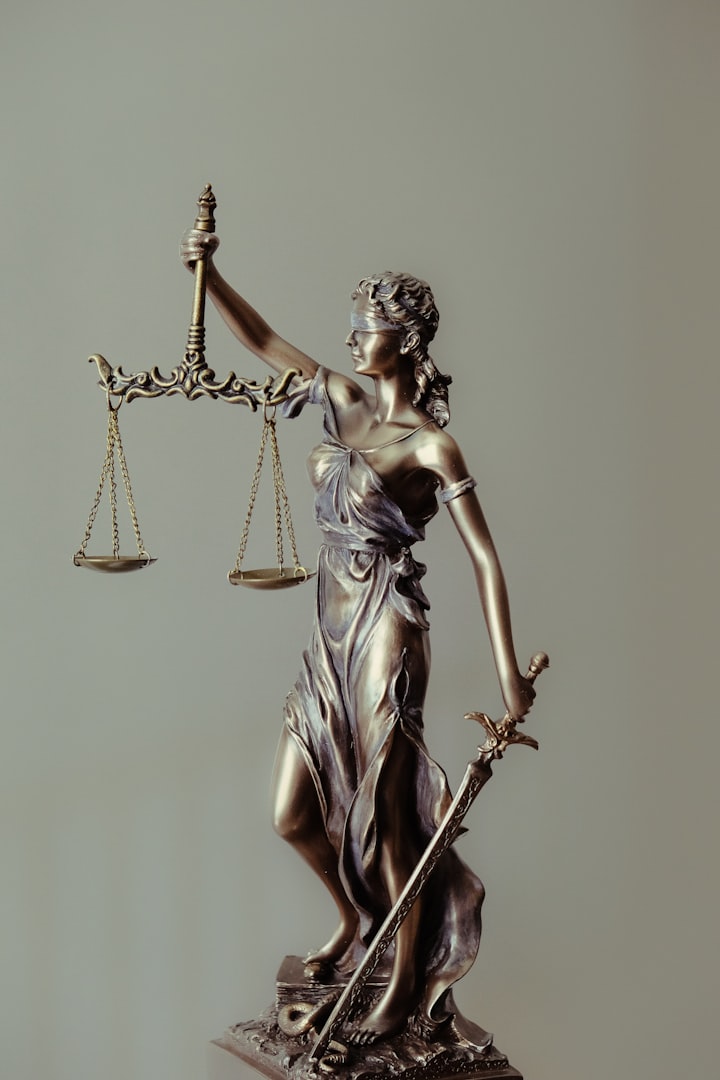The Demise of Justice in Nigeria:
The Alleged Favoritism Towards Bola Tinubu

Part 1: The Rise of Bola Tinubu
In the tumultuous world of Nigerian politics, few figures have risen to prominence as significantly as Bola Ahmed Tinubu. His journey began in the late 1990s when he became the Governor of Lagos State. Over the years, he not only consolidated power within his party, the All Progressives Congress (APC), but also became a dominant force on the national stage.
Part 2: The Controversial Political Maneuvers
Tinubu's ascent was marked by controversial political maneuvers, but it was his alleged influence over the judiciary that drew the most attention. Critics argued that he had cultivated a network of loyal judges who would rule in his favor when needed, undermining the principles of justice and fairness.
Part 3: The Lagos State Connection
One of the most cited examples of judicial favoritism was the way in which cases involving Lagos State were handled. Critics claimed that judges seemed to show leniency towards the state government's actions, especially when they were under Tinubu's leadership. Land disputes, contract awards, and other legal matters often seemed to go in favor of the Lagos State government.
Part 4: The Battle for Lagos
As Tinubu's grip on Lagos tightened, opposition parties and activists launched legal battles against his administration. They accused him of cronyism, embezzlement, and other forms of corruption. However, many of these cases struggled to gain traction, leading to allegations that the judiciary was protecting Tinubu.
Part 5: The National Stage
Tinubu's influence extended well beyond Lagos State. As a kingmaker in Nigerian politics, he played a pivotal role in shaping the country's leadership. Some argued that his sway reached the highest levels of the judiciary, enabling him to manipulate the appointment of key judges who would be loyal to his cause.
Part 6: The Erosion of Trust
Over time, public trust in Nigeria's judicial system began to erode. People from all walks of life, including lawyers, activists, and ordinary citizens, expressed concerns about the perceived bias in favor of Tinubu and his associates. The judiciary, once considered a pillar of democracy, was now seen as a tool of the political elite.
Part 7: Calls for Reform
Amid mounting criticism, calls for judicial reform in Nigeria grew louder. Civil society organizations, legal experts, and international observers urged the government to take action to restore faith in the justice system. They called for transparency in judicial appointments and an independent body to investigate allegations of corruption within the judiciary.
Part 8: The Unraveling
As pressure mounted, cracks began to appear in Tinubu's political empire. Internal divisions within his party, the APC, became more apparent, and opposition parties seized on the growing discontent. Legal challenges against his rule gained momentum, and some judges, feeling the weight of public opinion, began to rule against the Lagos State government in high-profile cases.
Part 9: A New Dawn?
The alleged favoritism towards Bola Tinubu had cast a long shadow over Nigeria's judiciary. However, with the shifting political landscape and the persistent demand for accountability, the tide seemed to be turning. The future of justice in Nigeria remained uncertain, but the desire for a more equitable and transparent system burned brightly.
Part 10: Conclusion
The story of the alleged favoritism towards Bola Tinubu within Nigeria's judiciary is a complex and contentious one. While many believed that justice had been compromised for political gain, others argued that the situation was more nuanced. The debate continued to rage on, shaping the country's political landscape and the future of its judicial system.
The alleged favoritism towards any individual or political figure within Nigeria's judiciary can have significant implications for the people of Nigeria. Here are some potential consequences:
Erosion of Trust: When people perceive that the judiciary is biased in favor of specific politicians or interests, it erodes public trust in the justice system. This can lead to a lack of confidence in the judiciary's ability to deliver fair and impartial rulings, which is essential for upholding the rule of law.
Injustice: Alleged favoritism may result in unfair outcomes in legal cases. Ordinary citizens, activists, and opposition parties may feel that they are not receiving equal treatment under the law, leading to a sense of injustice.
Political Instability: A perception of a compromised judiciary can exacerbate political tensions and instability. It may lead to protests, demonstrations, and challenges to the legitimacy of elected officials, potentially destabilizing the country's political landscape.
Impacts on Governance: When politicians believe they can act with impunity due to their perceived influence over the judiciary, it can result in poor governance and corruption. Public officials may prioritize personal interests over the welfare of the nation, leading to economic and social challenges.
Calls for Reform: Allegations of judicial favoritism often lead to calls for judicial reform. Civil society organizations, legal experts, and citizens may demand changes in the appointment process of judges, increased transparency, and accountability mechanisms to ensure a fair and impartial judiciary.
International Perception: Nigeria's reputation on the international stage can be negatively affected by concerns about the independence and fairness of its judiciary. This can impact foreign investments, diplomatic relations, and international partnerships.
Ultimately, the consequences for the people of Nigeria depend on various factors, including the extent of perceived favoritism, the response of civil society and political actors, and the government's willingness to address these concerns through reforms and transparency measures. A fair and impartial judiciary is crucial for upholding the rule of law, protecting citizens' rights, and ensuring the stability and prosperity of a nation.





Comments
There are no comments for this story
Be the first to respond and start the conversation.